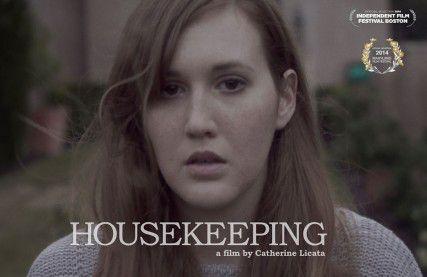Before 1980, there was no law against spousal rape. In court, rape and sexual assault victims in the United States were forced to reveal their sexual history when their case was considered, potentially condemning their testimony. Rapists could not be convicted unless there was a witness to the actual incident to testify in court. While the rise of second-wave feminism in the 1970s and 1980s gave way to legal reform and raised awareness of sexual assault and rape, some Boston University students said they are still shocked by the frequency of such incidents on campus.
“I just don’t think that people talk about it as much as they should. I feel date rape is more common than people think,” College of Arts and Sciences freshman Michelle Cedeno said.
With the recent addition of a Boston Area Rape Crisis Center bulletin board advocating safety on campus in Warren Towers, Boston University has been abuzz with talk of safety and sexual assault prevention on an urban campus. While technology and other innovations have allowed for tighter security than ever, students say sexual assault occurs more often than many would think or care to discuss.
“Even if we don’t always hear about it, I’m sure that it happens all the time,” Sargent College of Health and Rehabilitation Sciences freshman Kara Lubeck said.
Many students said they feel as though the subject of sexual assault doesn’t receive as much attention as it should.
“Most people don’t seem to know the risks of sexual assault and harassment because it’s not something people share with others, so the whole issue is muffled and therefore allows more instances to occur,” College of Arts and Sciences freshman Emma Rosenfeld said.
NECESSARY MEASURES
BU is attempting to raise awareness of the issue on campus through boards and advertisements, such as the one in Warren Towers. The board advertises a 24-hour hotline run by the Boston Area Rape Crisis Center, in addition to providing information and clarifying common misconceptions about sexual assault.
The BARCC, founded in 1973, provides group and individual counseling, legal advocacy and 24-hour medical advocacy for victims. It is the only one of its kind in the greater Boston and Cambridge area and the oldest and largest center in Massachusetts.
According to the BARCC, 4,418 adolescents and adults are sexually assaulted each year in Massachusetts alone, which equates to 12 people each day and one every two hours. Females aged 16 to 19 are also four times more likely to be victims of rape or sexual assault than the general population.
When asked about her experiences at BU, Rosenfeld said she felt “reasonably safe,” but she still remains wary of potential run-ins with attackers.
“There was one instance where another girl and I were walking one block to get a cab late at night, and we got surrounded by a group of men and had to resort to hitchhiking to escape them since no cabs were coming,” she said. “Before then, I felt extremely safe at BU, now I feel extremely cautious.”
“On a scale of 1 to 10, 1 being the lowest and 10 being the highest, I would say that I would give BU a 4 on safety. This is only because I had a couple frightening encounters here during my first year,” Cedeno said.
Cedeno referred to incidents with intoxicated men chasing her late at night and encounters with the date rape drug rufilin.
“This year alone, I know of several people who have been drugged, even if it wasn’t on purpose, and two of them were boys, so it’s not even just the girls. Everyone needs to be careful,” Lubeck said.
“I was really surprised to hear about the frequency of these drugs used when I got here at the beginning of the year,” College of General Studies freshman Ami Patel said.
SAFETY FIRST
Despite hearing of these incidents, Patel said she feels as though BU is still “one of the safer campuses. I never have to worry about anything happening if I’m walking back from my dorm late since it’s such a safe area.”
Many students said they feel that BU is relatively safe compared to other schools, especially urban schools.
“Compared to a lot of college towns, I would say that Boston is definitely much safer,” Lubeck said.
Rosenfeld agreed, adding that the city of Boston itself seems relatively safer than most.
BU itself provides several measures of sexual assault prevention and awareness. Safety programs are provided for all entering students. Student Health Services and the Task Force on Violence and Harassment collaborate on presentations on rape awareness and violence prevention workshops during the academic year and upon request.
One of the workshops is the Rape Aggression Defense program, a class available to all BU students that teaches physical defense against rape and other forms of sexual violence. The 16 or 20-hour course is taught by certified Boston University Police Department RAD instructors.
Additionally, the BUPD uses the blue-light system, which consists of blue emergency call boxes that dispatch a call to the BUPD, who arrive on the scene within two minutes of the initial call.
In a report given by the BUPD in 2010, 21 forcible sex offenses were reported on the Charles River Campus between 2007 and 2009. However, the BARCC reported that nearly 60 percent of rape and sexual assault victims did not report their victimization to the police in 2006, according to the National Crime Victimization Survey.
“I don’t hear about sexual assault frequently on campus, but even that is too often,” Lubeck said. “It would be nice to never have to hear about it.”




















































































































